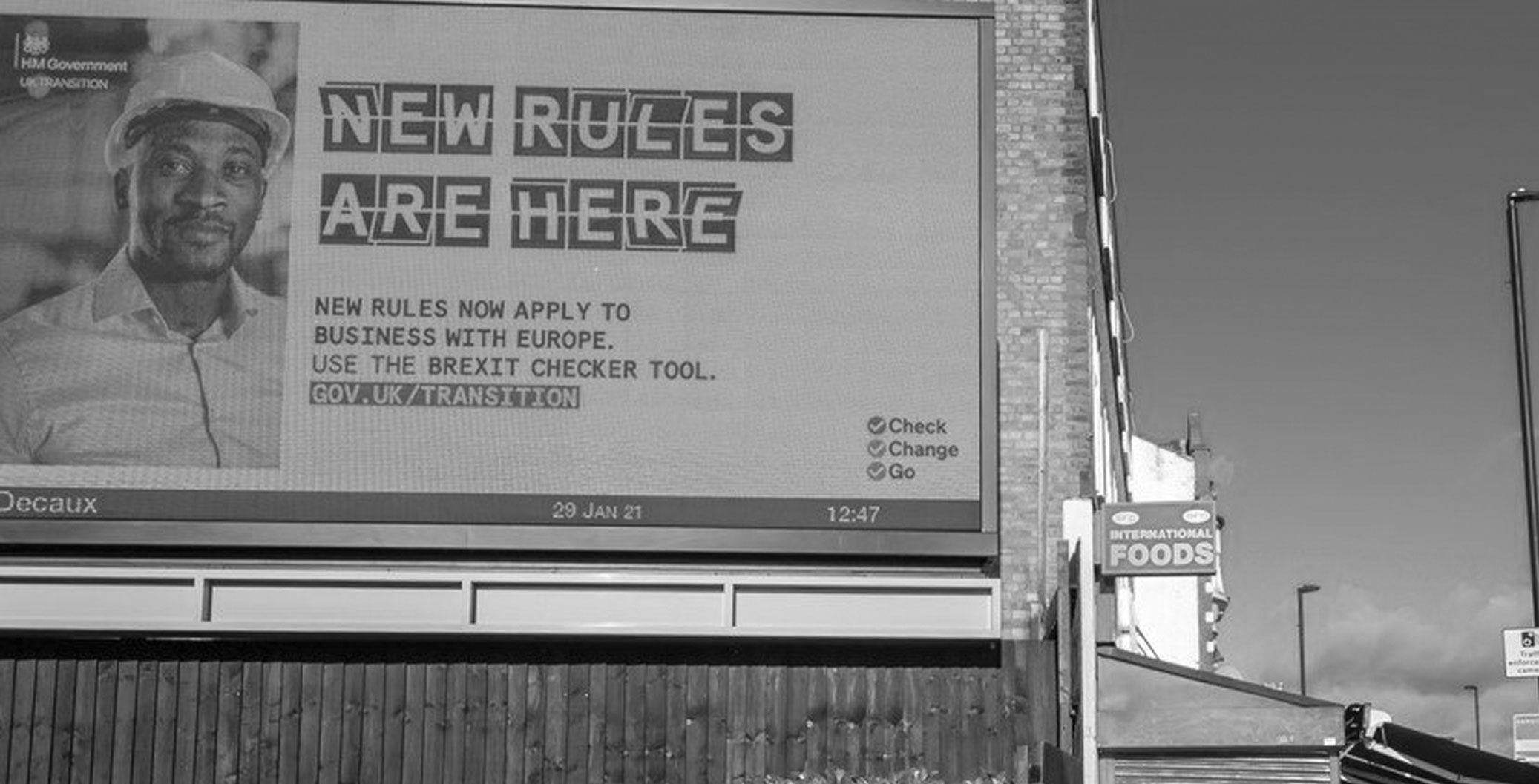On 24.12.2020, close to the end of the post-Brexit transitional period during which Community provisions remained in force with respect to the United Kingdom, the European Union and the United Kingdom signed an EU-UK Trade and Cooperation Agreement Cooperation Agreement, published in the Official Journal of the European Union on 31.12.2020, which regulates the exchange of goods, investments, the provision of services and the mobility of people.
Since 1.1.2021, the United Kingdom has been de facto a “third” country, with the consequent repercussions in terms of taxation both on the VAT front and on the direct taxation front.
On the first front, customs barriers are once again becoming more important and the VAT treatment of the supply of goods and services, whether B2B or B2C, changes and the regulations applicable to the movement of goods between the two States which do not involve the transfer of ownership ( transfer of own assets for purposes falling within the scope of the business or for improvement operations, transfer of assets to be installed and transferred).
However, the territoriality criteria of the tax for the provision of “generic” services remain unchanged, both in the case in which they are rendered to taxable subjects (B2B) and in the case in which they are rendered to “private individuals” (B2C). Instead, the identification, documentary and communication obligations change:
in fact, it is no longer necessary to register with VIES for operations with an English counterpart, while to complete the customs formalities it is necessary to acquire the EORI code;
· for “generic” services, proof of the English customer’s VAT taxable status must be provided by means other than checking the VIES database;
the proof of sending the goods to the United Kingdom, for the application of the non-taxability regime, is given by the customs documentation;
· the transfer of goods and the provision of B2B services should no longer be reported in the INTRASTAT summary lists;
· change some codings used in the presentation of the so-called “exterometer”.
The effects of Brexit inevitably also have repercussions on the traditional three alternative methods of recovering the tax paid on purchases for English subjects without a permanent establishment in Italy (refund application, direct identification, tax representative). On this point, a prudential approach is currently needed as it is not yet clear whether the aforementioned procedures will be able to continue, subject to readjustment to the new context and under what conditions.
Further clarifications are also awaited on the maintenance of the Italian VAT number, in fact the appointment of a tax representative is also mandatory for English economic operators who are currently directly identified for VAT purposes in Italy.
The Withdrawal Agreement also provides for the regulation of those operations left unfinished at the end of the transitional period, such as, for example, operations involving goods shipped in 2020 which arrive at their destination in 2021. These operations will qualify respectively as: intra-EU supplies and not as export supplies, in the country from which they depart, intra-EU purchases and not as imports, in the country in which they arrive, subject to verification at the Customs of the State of destination of the goods and the start of transport or shipping in 2020.
Particular attention deserves the management of relations with Northern Ireland. In fact, the Withdrawal Agreement guarantees this country a sort of union territorial continuity with Northern Ireland as a result of which it remains subject to EU legislation for the supply of goods, while otherwise, it is considered a third country for the provision of services. To this end, the EU directive 20.11.2020 n. 1756 provides that taxable persons who carry out supplies of goods in Northern Ireland (including so-called intra-community supplies) or intra-community purchases of goods (also by non-taxable entities) are identified, in accordance with VAT legislation, with the code “XI”, different from that of the United Kingdom (beginning with “GB”).
On the income tax front, on the other hand, it should be noted that a series of European directives applicable pre-Brexit have disappeared. In particular, we note:
· the system of intra-community extraordinary transactions (Directive 2009/133/EC, implemented in articles 178 and following of the TUIR);
· the exemption from withholding tax on dividends paid to group companies in the United Kingdom (Directive 2011/96/EU, implemented in art. 27-bis of Presidential Decree 600/73);
· exemption from withholding tax on royalties and interest paid to group companies in the United Kingdom (Directive 2003/49/EU, transposed into article 26-quater of Presidential Decree 600/73).
Furthermore, certain procedures for the automatic exchange of information aimed at combating evasion and fraud, envisaged only in the intra-community context, will no longer be applicable, while the procedures for the automatic exchange of data on the financial accounts of non-residents and of the country by country reports, by virtue of the United Kingdom’s accession to the OECD Convention for mutual assistance for tax purposes, just as the tax rules that refer to relations with states belonging to the white list will continue to apply in relations with the United Kingdom , or which ensure an adequate exchange of information.
Furthermore, the procedures for the automatic exchange of international rulings and transfer pricing agreements (regulated in Italy by Legislative Decree 32/2017) and data on “aggressive” international transactions (regulated in Italy by Legislative Decree Legislative Decree 100/2020, DAC6), if the parties implement the provisions of Part II, Title XI, Chapter V, art. 5.2 of the Trade and Cooperation Agreement of 12.24.2020, according to which the United Kingdom and the European Union undertake, even after 12.31.2020, to maintain the standards set by the OECD on these matters unchanged.
It remains to be clarified whether, by virtue of any extensive interpretations, the following provisions previously in force and in fact no longer applicable at present can still be considered applicable:
· the exemption from withholding tax for interest on securities issued by “large issuers” with shares listed on UK markets (unless the shares are listed in Italy or in another EU Member State), art. 1 of Legislative Decree 239/96;
· the exemption from withholding tax for the interest of long-term loans to companies disbursed by banks established in the United Kingdom (the rule should however continue to apply to institutional investors subject to supervision in the United Kingdom) art. 26, co.5 bis of Presidential Decree 600/73;
the reduced withholding tax of 11% on dividends paid to pension funds set up in the United Kingdom, art. 27 co.3 of Presidential Decree 600/73;
the reduced withholding tax of 1.20% on dividends paid to joint-stock companies and commercial entities resident in the United Kingdom (if not covered by the “mother-daughter” regime), art. 27 co. 3 ter of Presidential Decree 600/73.
· the possibility of accessing the flat-rate scheme for individuals residing in the United Kingdom who produce at least 75% of their total income in Italy (art. 1 co. 57 letter b) of Law 190/2014);
the possibility, for Italian residents who own properties in the United Kingdom, to pay the IVIE on the cadastral value (art. 19, paragraph 15 of Legislative Decree 201/2011);
· the exemption from Italian inheritance tax of Government bonds issued by the United Kingdom (art. 12 paragraph 1 letter h) and i) of Legislative Decree 346/90);
· the deductibility from total income of contributions to pension funds set up in the United Kingdom (Article 10, paragraph 1, letter e-bis) of the TUIR);
the tax deduction for the rent of students of universities based in the United Kingdom (Article 15, paragraph 1, letter i-sexies) of the TUIR);
· in relations with the United Kingdom, the provision of art. 47-bis of the TUIR, which by absolute presumption never considers privileged, for the purposes of taxation of dividends and capital gains, the regimes granted by Member States of the European Union;
· the possibility of opting for tax consolidation between “sister” companies, if the parent company is resident in the United Kingdom (art. 117 paragraph 2-bis of the TUIR);
· the possibility of consolidating the Italian permanent establishments of companies based in the United Kingdom (art. 120 paragraph 1-bis of the TUIR);
the possibility of opting for the installment of the “exit tax” pursuant to art. 166 co. 9 of the TUIR, if the transfer of the company headquarters takes place towards the United Kingdom. A similar foreclosure is envisaged for operations assimilated to “direct” transfers (e.g. incorporation, by companies based in the United Kingdom, of Italian companies).
Federica Basile
TL Partners

